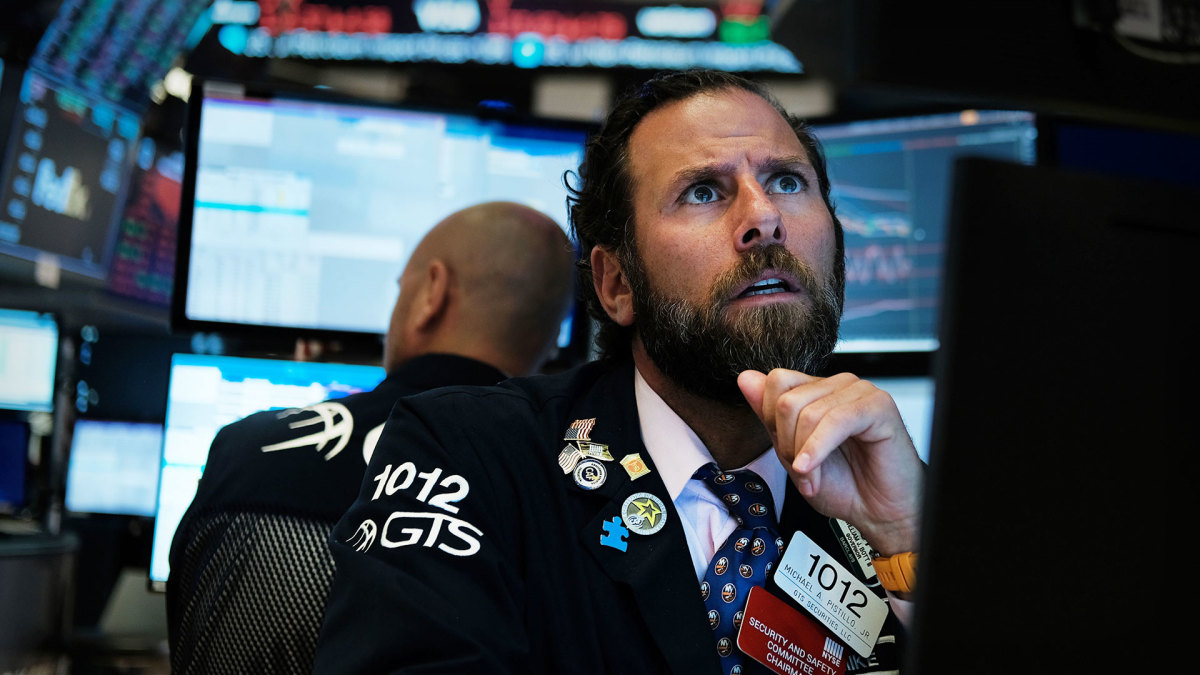
Jack Dorsey made a huge name for himself in the business world by co-founding two top technology companies – Twitter (now X) and Square (now Block) (SQ) .
X, the social media titan now controlled by Elon Musk, receives much more attention than Block. But the financial services company Square, now led by Dorsey, is a major player in its industry too.
Related: Single Best Trade: Wall Street veteran picks Palantir stock
Block is perhaps best known for its payment processing division (the company’s original business). The service is used primarily by small companies, but is moving up the totem pole. Block also has a popular peer payment service Cash App, which is a competitor to Venmo.
Block is also active in the world of bitcoin. It builds and funds projects to improve bitcoin's security and user experience. The company also is a major bitcoin investor, holding about $5 billion worth as of May 8.
Analysts like the company. Of 30 analysts cited by Tipranks, 26 rate the stock as buy and four as hold.

MARCO BELLO/AFP via Getty
Morningstar’s take on Block
One analyst who likes Block is Morningstar’s Brett Horn. He assigns the company a narrow moat, meaning he thinks it has competitive advantages that will last at least 10 years.
Horn estimates Block’s fair value at $90, well above the May 8 quote of $71.40. The stock has climbed 39% in the past six months.
He lauds Block’s legacy Square business model. That model is “characterized by efficient client onboarding, innovative point-of-sale devices, flat fees, and an internally developed and integrated set of software solutions,” he said.
This “allows the company to reach and retain micro merchants that are unviable for other acquirers.”
Related: Cathie Wood sells $48 million of cloud tech stock
To get big enough, “Square needed to move past its micro merchant base,” Horn said.
“And results over the past few years suggest it is doing just that. About two-thirds of its payment volume [now] comes from merchants generating over $125,000 in annual gross payment volume.”
That means profitable growth for Block. “We think the move upstream and cross-selling will allow Square to materially improve margins in the years ahead and show the viability of its business model,” Horn said.
But don’t get overexcited. “We see Square as a narrow-moat niche operator, not a disrupter,” he said. “Market share is limited by its relatively high pricing.”
S&P 500 membership for Block?
Still, the company’s strength makes it “increasingly likely” that it will be added to the S&P 500 index, though it’s “certainly not guaranteed,” Barclays analyst Ramsey El-Assal wrote in a report, according to The Fly.
Block’s profitable fourth quarter makes it eligible, he said. Moreover, financial services represent the second-most underweight industry in the index. And Block has a market cap of $44 billion. Inclusion in the index could boost Block’s share price, he said.
Related: Billionaire fund manager Griffin predicts Fed rate cuts in 2024
Eligibility for the S&P 500 is “governed by quantitative criteria—including financial viability, public float, adequate liquidity, and company type,” according to S&P Global.
S&P Global’s U.S. Index committee “chooses among those eligible stocks, taking sector representation into account,” S&P Global said.
“Among the key requirements are that a company has a sizeable enough market capitalization to qualify as a large-cap stock. It also must have sufficient float, or percentage of shares available for public trading.”
More Wall Street Analysts:
- Analyst unveils new Nike price target ahead of big summer for sports
- Analysts weigh in on Google-parent Alphabet’s stock after cloud event
- Analysts revamp Disney stock price target after proxy fight
Block checks those boxes, given its size and profitability.
Membership in the S&P 500 provides two benefits for a stock. The first is reputational. The 500 companies are the biggest, most successful ones on the market. Being chosen for the S&P 500 is an imprimatur for success.
Second, a slew of exchange-traded and mutual funds replicate the index. So the managers of those funds must buy shares of newly-chosen companies.
A whopping $11.4 trillion of assets were indexed or benchmarked to the S&P 500 as of Dec. 31, 2022, according to S&P Global.
Related: Veteran fund manager picks favorite stocks for 2024


.png?w=600)




